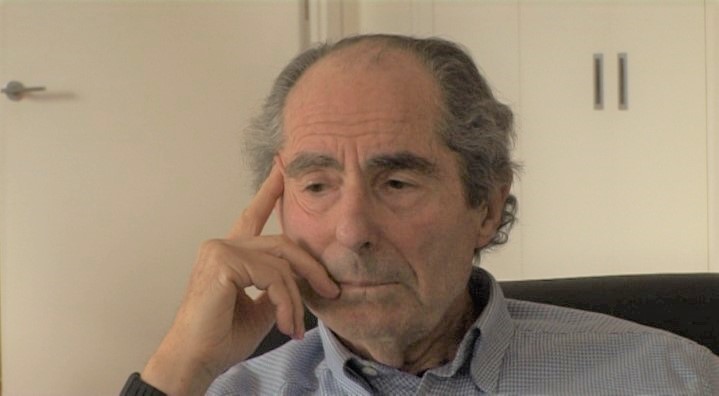NEXT STORY

A man named Gans
RELATED STORIES

NEXT STORY

A man named Gans
RELATED STORIES


|
Views | Duration | |
|---|---|---|---|
| 81. Portnoy's Complaint: were you ashamed of it? | 417 | 01:00 | |
| 82. 'What could outlandishness do for me?' | 278 | 01:44 | |
| 83. The Holocaust | 460 | 02:55 | |
| 84. A man named Gans | 271 | 01:52 | |
| 85. My rejected play about Gans | 266 | 01:58 | |
| 86. Further education: the trial of Ivan the Terrible | 299 | 02:20 | |
| 87. Primo Levi and other survivors | 867 | 03:56 | |
| 88. Hiroshima, and the end of the war | 361 | 03:19 | |
| 89. Vietnam | 356 | 03:43 | |
| 90. The manuscript about the girl who blew up a building | 351 | 02:17 |


Of course even though I was very young, I became conscious during the war of... of the treatment of the Jews in Europe – but only in a vague and hazy way. And I certainly as a kid, eight, nine, ten years old, had no concept of death camps or of gas chambers or the burning of bodies. Only when the war ended in 1945 and we began to see photographs of the people – the survivors of Auschwitz and Dachau, and the other concentration camps – did I... did all of us, even this boy, realise the extent of the torment… begin to realise the extent of the torment and the torture of these people.
And then in 1948 the dramatization of The Diary of Anne Frank came to Broadway and it had a huge impact on everyone, not just those who went to see it. Prior to that the book had come out, The Diary of Anne Frank. And I don't know when I read it, probably about then I would be about 15 or so, and it's not directly connected to the torment and the terror and the torture. But it had this family and the family were sympathetic and… so that broadened one's understanding of what happened, but it still didn't educate you as to what truly had happened.
In 1962, I think, Hannah Arendt's book Eichmann in Jerusalem, came out. By then I was a grown person and I read it, it was in The New Yorker and I bought a copy, and this further educated me, you know. Also, in Commentary Magazine, which was the magazine published by the American Jewish Committee, there were articles about what later came to be called: the Holocaust. I don't know when exactly that word became the name for that phenomenon, I believe it was Elie Wiesel's word, and it may have been some time in the late '50s or early '60s. But the persecution... the persecution of the Jews was a subject in… in the pages of Commentary.
The fame of the American writer Philip Roth (1933-2018) rested on the frank explorations of Jewish-American life he portrayed in his novels. There is a strong autobiographical element in much of what he wrote, alongside social commentary and political satire. Despite often polarising critics with his frequently explicit accounts of his male protagonists' sexual doings, Roth received a great many prestigious literary awards which include a Pulitzer Prize for fiction in 1997, and the 4th Man Booker International Prize in 2011.
Title: The Holocaust
Listeners: Christopher Sykes
Christopher Sykes is an independent documentary producer who has made a number of films about science and scientists for BBC TV, Channel Four, and PBS.
Tags: Europe, Auschwitz, Dachau, The Diary of Anne Frank, Eichmann in Jerusalem, Commentary Magazine, The New Yorker, Hannah Arendt, Elie Wiesel
Duration: 2 minutes, 55 seconds
Date story recorded: March 2011
Date story went live: 18 March 2013